-
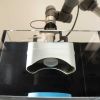 +39 +4
+39 +4Tumor-destroying sound waves receive FDA approval for liver treatment in humans
The U.S. Food and Drug Administration has approved the use of sound waves to break down tumors—a technique called histotripsy—in humans for liver treatment.
-
 +39 +3
+39 +3New study will examine irritable bowel syndrome as long COVID symptom
Researchers will use a $3.2 million grant from the National Institute of Diabetes and Digestive and Kidney Diseases to study gastrointestinal symptoms as a condition of long COVID.
-
 +36 +6
+36 +6Rare 1885 Photo Captures the First Licensed Women Doctors of India, Japan, and Syria
Their individual stories are as fascinating as their shared ones.
-
 +41 +7
+41 +7Risk of incident cardiovascular disease among patients with gastrointestinal disorder: a prospective cohort study of 330,751 individuals
AbstractBackground and Aims. The associations between gastrointestinal diseases (GIs) and cardiovascular disease (CVD) were unclear. We conducted a prospective
-
 +57 +5
+57 +5Surgeon Reacts To THE MARS MISSION | Dr. Chris Raynor
-
 +36 +6
+36 +6GLP 1 & Ozempic: How These Affect Weight Loss & Metabolic Health | Dr. Rob Lustig & Dr. Casey Means
-
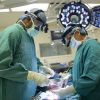 +44 +9
+44 +9Antibody Shows Promise for Preventing Organ Rejection After Transplantation
DURHAM, N.C. – A man-made antibody successfully prevented organ rejection when tested in primates that had undergone a kidney transplant, Duke Health researchers report. The finding clears the way for the new monoclonal antibody to move forward in human clinical trials. Results of the study appear online Aug. 30 in the journal Science Translational Medicine.
-
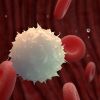 +26 +8
+26 +8“Inverse vaccine” shows potential to treat multiple sclerosis and other autoimmune diseases
Pritzker Molecular Engineering researchers led by Prof. Jeffrey Hubbell showed that their compound can eliminate the autoimmune reaction associated with multiple sclerosis.
-
 +34 +4
+34 +4England to roll out world's first seven-minute cancer treatment jab
Britain's state-run national health service will be the first in the world to offer an injection that treats cancer to hundreds of patients in England which could cut treatment times by up to three quarters. Following approval from the Medicines and Healthcare products Regulatory Agency (MHRA), NHS England
-
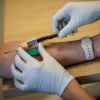 +31 +6
+31 +6Parkinson’s breakthrough as blood test could help develop cure
The new blood test could allow Parkinson’s disease to be diagnosed and treated earlier
-
 +29 +3
+29 +3Inflammatory Bowel Diseases and Parkinson's Disease - PubMed
The etiology of Parkinson's disease (PD) is multifactorial, with genetics, aging, and environmental agents all a part of the PD pathogenesis. Widespread aggregation of the α-synuclein protein in the form of Lewy bodies and Lewy neurites, and degeneration of substantia nigra dopamine neurons are the …
-
 +37 +5
+37 +5The (Second) Most Deadliest Virus on Earth
-
 +39 +7
+39 +7Why Smoking ANYTHING Is a Terrible Idea...
-
 +34 +5
+34 +5Doctors in Eastern Europe have been using viruses to treat superbug infections since the 1930s.
Bacteriophages have been a mainstay in medical centers abroad for some time now. Georgia’s Eliava Institute has been active since the 1930s. Yet countries including the U.S. and U.K. grant access almost exclusively under compassionate use. That means bacteriophages have been languishing for decades as a last-ditch option.
-
 +35 +4
+35 +4Many Vital Drugs Are Now Impossible to Find. Here's Why.
Past public ire over high drug prices has recently taken a back seat to a more insidious problem – no drugs at any price.
-
 +27 +8
+27 +8More Than a Million Americans "Missing" as US Endures a Crisis of Early Death
If the United States of America had the same mortality rates as other wealthy countries, more than 1 million people would have avoided death in 2021, a new study found.
-
 +3 +1
+3 +1Going home: Conjoined twins released from Texas Children’s Hospital after successfully separated in complex surgery
Conjoined twins are finally going home after the pair was safely separated during a complex surgery at Texas Children’s Hospital in June.
-
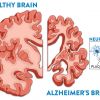 +29 +3
+29 +3Transcranial Pulse Stimulation with Ultrasound in Alzheimer's Disease—A New Navigated Focal Brain Therapy
-
 +23 +4
+23 +4‘Safe and effective’: first malaria vaccine to be rolled out in 12 African countries
A long-awaited vaccine for malaria has been announced for rollout across 12 African countries over the next two years, potentially saving tens of thousands of lives. An initial 18m doses of the world’s first malaria vaccine have been assigned to the countries where the risk of children falling ill and dying from malaria is highest, according to a statement from the global vaccine alliance Gavi, the World Health Organization (WHO) and Unicef.
-
 +18 +3
+18 +390% of patients respond to new blood cancer treatment in trial
Anew cancer therapy developed at Jerusalem’s Hadassah-University Medical Center had a 90% response rate in a new clinical trial, with over half of patients going into total remission. The CAR-T therapy — which arms the body’s own immune cells to fight cancer — was able to send multiple myeloma, an extremely deadly cancer that impacts the immune system, into remission.
Submit a link
Start a discussion




















